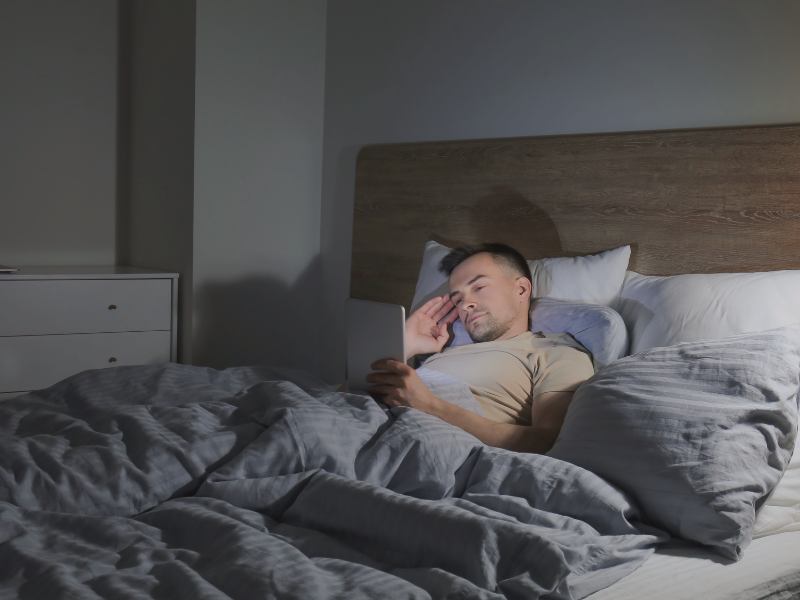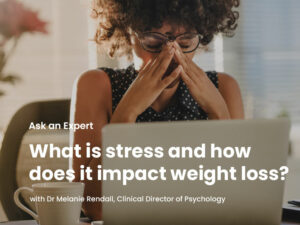Sleep is often overlooked but is in fact, a crucial element in weight loss. Sleep deprivation is defined as not obtaining adequate total sleep. Each night adults aged 18-65 should be getting between 7 to 9 hours sleep and those over 65 should be getting between 7 to 8 hours.
We have all read or heard about the importance of sleep but did you know that sleeping less than seven hours of sleep per night can reduce and undo the benefits of a healthy weight loss programme?
Here is why:
A systematic review of research from King’s College London found that overeating is another symptom of sleep deprivation. Those who slept only 3.5-5.5 hours a night on average consumed 385 calories more the following day than those that had slept 7-12 hours.
Not only did those with less sleep consume more calories, but also, they were more likely to eat more fat and less protein the following hours. Lack of sleep sparks a vicious cycle where you feel tired; your metabolism slows down, which has an impact on your hormones.
We have all had one of those days after a terrible night of sleep where we turn to food to try and boost our energy levels. Science shows that lack of sleep alters the release of two hormones that help the body regulate feelings of hunger. The body produces more ghrelin which, stimulates appetite and less leptin which, suppresses your appetite.
Hormones are not the only things impacted. Too little sleep can have an impact on the fat cells’ ability to react properly to insulin, decreasing by 30%. This can lead to weight gain, type 2 diabetes and other health issues.
Lack of sleep and weight can become a never-ending cycle – as the body gains weight the neck thickens and the breathing pipes become more easily collapsed which can cause sleep apnea.
We asked our very own world-class, expert bariatric surgeon, Shaw Somers on the link between poor quality sleep and obesity:
‘The link between disordered sleep and obesity is becoming recognised as an important one.
Even to the extent that instead of obesity causing sleep apnea, it is thought that sleep apnoea can trigger obesity, which then makes the sleep apnea worse.
I would always ask patients about sleep patterns. I’m amazed how often patients don’t get good sleep due to snoring or have awful sleep patterns; staying awake late on the computer or watching ‘junk’ TV. Sleep hygiene is as important to good health as personal hygiene.’
For many of us, sleep has become a ‘luxury’ rather than an essential component of good health and wellbeing, as our lives become more and more hectic and busy. As you can see this should never be the case. Sleep has a number of health benefits. Mr Somers also recommended the following website for more information about how to start implementing good sleep hygiene practices into busy lives:



